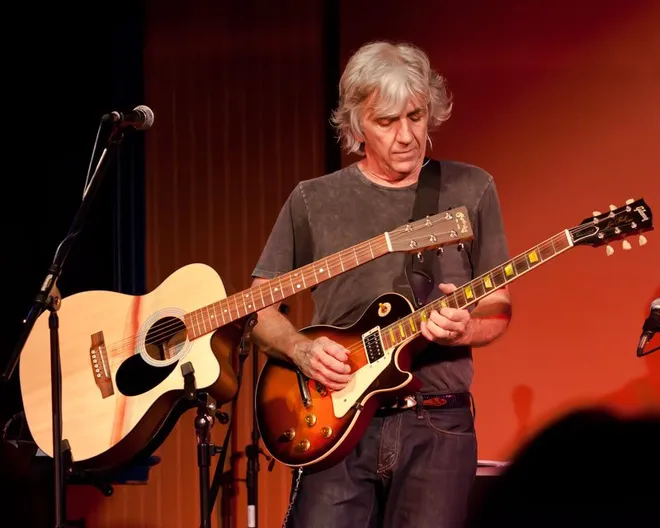
All images courtesy of John Fannon
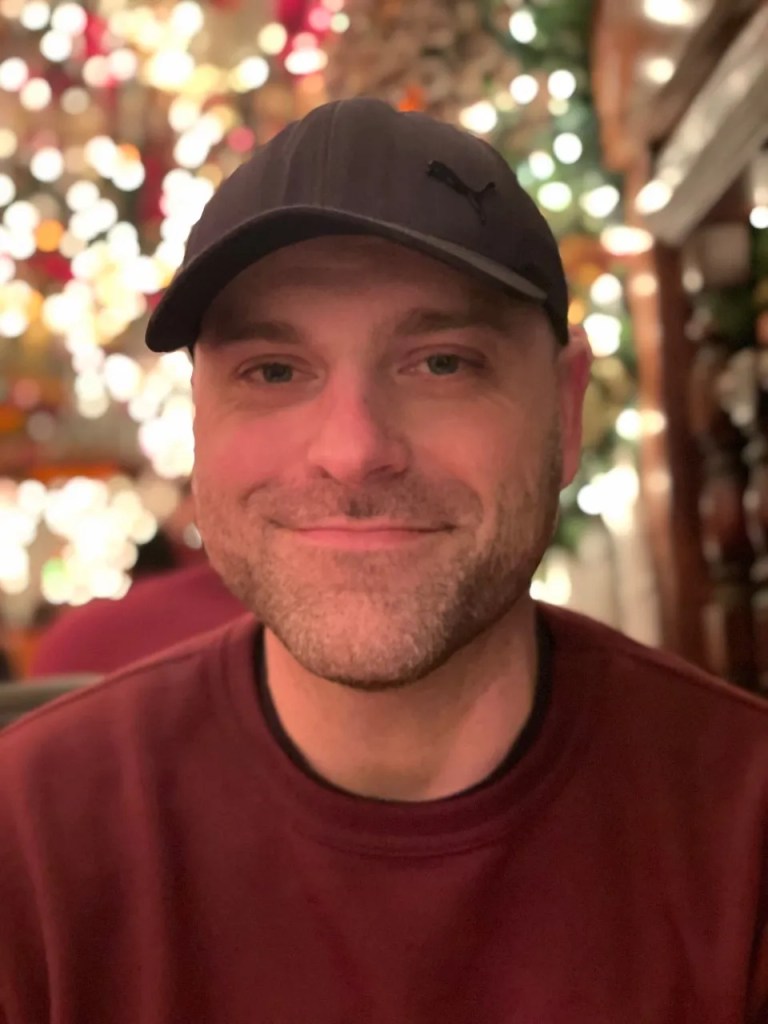
By Andrew Daly
[email protected]
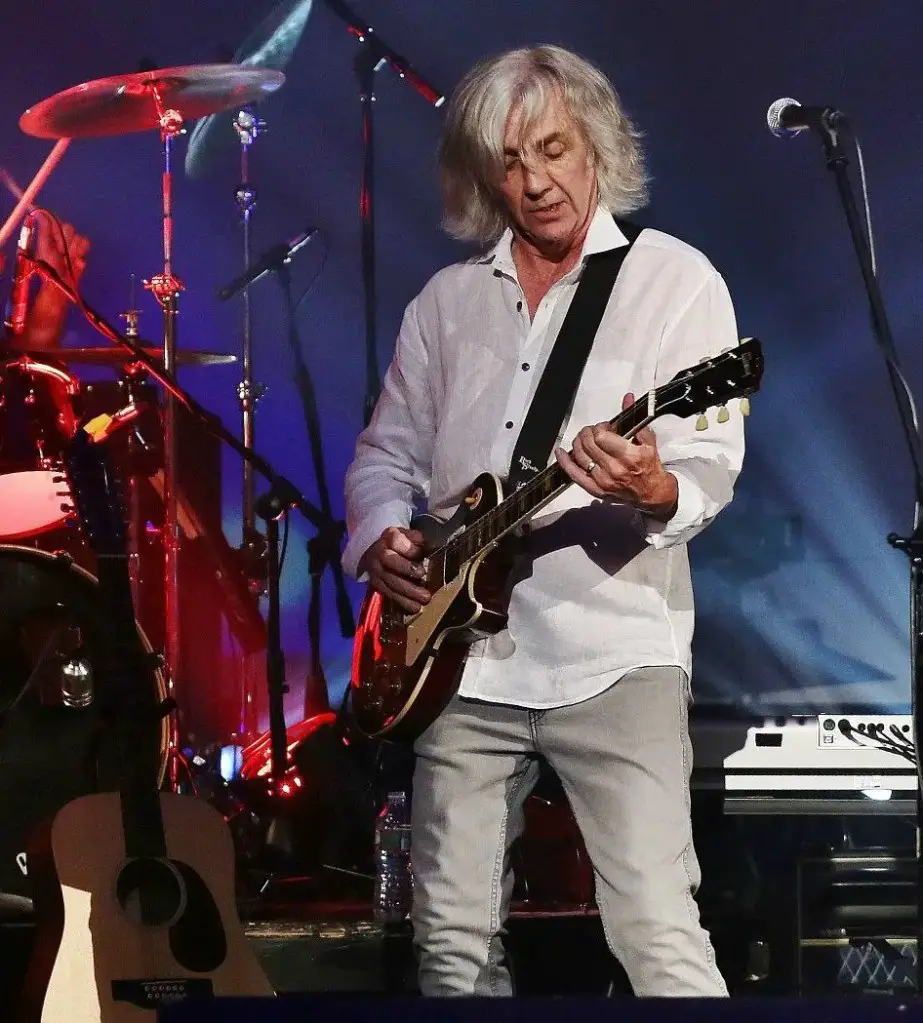
Recently, I caught up with veteran six-stringer John Fannon of New England. Among other things, we touch on John’s origins in music, the formation, and evolution of New England, the recording of the band’s debut, working with Paul Stanley, touring with KISS, and a whole lot more.
If you would like to learn more about John Fannon, the link to his webpage is here. Once you’ve done that, check out this interview with John. Cheers.
Andrew:
John, thank you for taking the time. As a young burgeoning musician, what first gravitated you toward the guitar?
John:
I was always listening to music as a young boy and when I saw The Beatles on The Ed Sullivan Show, I think a spark was getting ready to blaze. Fast forward about a year, and I saw a good friend in High School playing guitar in a band in our variety show. After the show, I asked him, “How long have you been playing?” When he said, “Nine months,” I was blown away. As I look back, he was probably just strumming chords, but he was playing guitar in a band. I’m thinking, “I can do this.” Fast forward now, and my parents gave me a black Silvertone acoustic for that next Christmas, but it wasn’t until I broke my collar bone playing baseball that I began learning how to play. A broken collar bone is a unique injury, you can’t move your arm from shoulder to elbow, but you can move from elbow to your hands. Since I couldn’t play baseball, I now had the time and began practicing for hours every day.
Andrew:
Early on, who were some of your greatest influences that initially shaped your style? How has your style shifted as you’ve moved through your career?
John:
Early on, I listened to a lot of blues. Things like John Mayall and The Bluesbreakers with Eric Clapton, and Paul Butterfield with Mike Bloomfield. They were probably the most influential early on because my attraction was to lead guitar. I also got into other iconic guitarists of that era who were creating a whole new style and tone, like Jimmy Page, Jeff Beck, Lesley West, Robin Trower of Procol Harum, and many others. I had this old turntable and I would play the solos over and over so I could figure out what they were doing. I scratched a lot of records but that is how I learned. [Laughs]. I remember seeing The Yardbirds with Jimmy Page at The Surf Nantasket. Standing about ten feet from him was a life-changing experience. I was hearing guitar sounds I had never heard in my life prior. I think he was playing through Fender Twins with a bunch of pedals. I saw Cream at Symphony Hall in Boston and had never seen a wall of Marshalls before. It was absolutely crazy, and I could not believe it. I was definitely seeing my path unveiled before my eyes.
My style has stayed pretty much the same throughout my career. I’m always trying to be melodic. I remember playing at a concert club in NYC, and after the show, I was headed to the bar and this guy called me over. As I got closer, I was stunned when I could see it was Miles Davis. He put his arm around me and said, “Son, I like the way you play. You know the meaning and importance of playing each note. You play with feeling…I love that.” That is a very gratifying, proud memory. As a writer, The Beatles, The Moody Blues, ELO, a bit of Deep Purple, and really everyone I liked. I am sure had an influence on me.
Andrew:
New England was an important and underexposed band coming out of the late 70s rock scene. Take me through its formation.
John:
Boston, MA was a melting pot for musicians who migrated from all over. In about 1970, Jimmy [Waldo] came to Boston from North Carolina with his band, Fatback. They did not have a guitar player. It was more like an Emerson Lake and Palmer group with a lead singer. In 1973, they decided to change drummers and found Hirsh [Gardner], who had come to Boston from Toronto to attend Berkely School of Music. Then the band decided to add a guitar player. As I said, I knew the band but I was also a short-order cook at The legendary club, The Grogery. I would frequently be asked to get up and jam with the bands and started to get a pretty good reputation, so they asked me to join. When we decided to get a new bass player, a friend introduced us to Gary [Shea], who was from Southington, CT. He had just returned from pursuing his career in England. At Gary’s audition, we said we are looking for more bottom from our bass player. Gary said with confidence, “I got bottom.” He was hired, and with Gary on board, the nucleus was complete. Kenney Mele was the last personnel change of Fatbck/Target. We played clubs all over New England and some in the midwest for a couple of years. Around 1975, the band broke up when Jimmy and I were recruited by Annie Macloone, who had a record deal with RCA. At that point in your career, you had to take a shot with any artist with a record deal. We made the album at Longview Farm in North Brookfield, MA where many iconic bands recorded and/or rehearsed for tours including The Rolling Stones. Unfortunately, within a year, that band broke up.
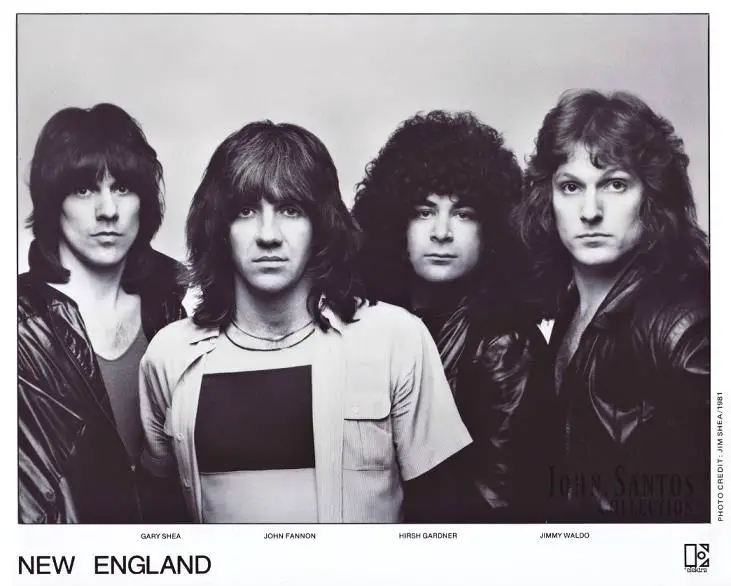
Andrew:
You mentioned your bandmates Hirsch Gardner, Jimmy Waldo, and Gary Shea. All three went on to do great things, but you were critical to their early careers. What were your first impressions of your former bandmates?
John:
Hirsh was a powerhouse and a creative drummer with a high voice. Great for the harmonies. Jimmy was the perfect keyboardist for the times with B3, Melotron, Moog, and Piano chops, and would be the third voice critical in our harmonies. Gary’s signature bass playing style with a lot of “bottom” rounded out the sound I was looking for.
Andrew:
New England’s 1979 self-titled album is a classic. Take me through the early stages of its development.
John:
After Annie MacLoone broke up, I continued to write songs and put my fate in myself. After a few months, I reached out to Jimmy, Gary, and Hirsh, and together we decided to go for it by not playing live, just “woodshed” AKA writing songs and creating our sound. That took about two years. During that time we did three demos at Earmark Studios in Philadelphia. The owner was a friend of mine and he fronted the time to us. After our third demo was finished, which included “Don’t Ever Wanna Lose Ya,” we felt that we were ready to start marketing the band for management and a record deal.
Andrew:
The album was released on Infinity Records. What did their courtship look like?
John:
We played our demo – which also included “Hello Hello Hello,” “Alone Tonight,” and “Shoot” – for some local Boston promo people. One of them got Ric Aliberte, who was the VP of Aucoin Management to come to see us perform at our rehearsal studio in Braintree, MA. We blew him away, and so he then brought Bill Aucoin to see us, and we blew him away too, and then the whole magical ride began. Presidents of major record companies were coming to our rehearsal studio, including Clive Davis of Arista, Chris Wright of Chrysalis, Ron Alexenburg of Infinity, and many others. There was a bidding war for us but Bill felt Infinity would be the best label for us, so we went with them. Not long after that Paul Stanley of KISS who was with Aucoin Management showed interest in producing us. He came to see us and we blew him away too! Brian May of Queen recommended Mike Stone to us via Ric Aliberte, so the production team was complete. Mike Stone and Paul Stanley are co-producers.
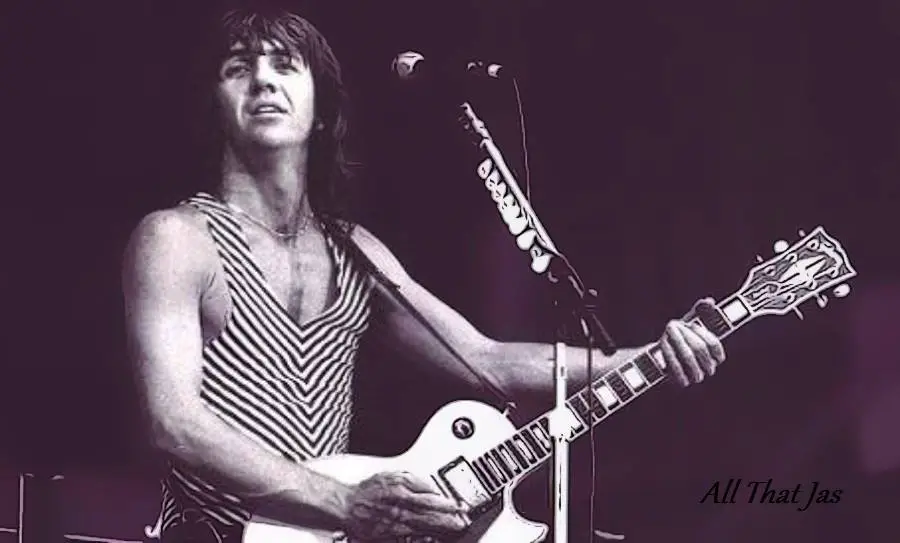
Andrew:
“Don’t Ever Wanna Lose Ya” is an enduring cut. Being the vocalist and guitarist of the band, your role was integral. Walk me through the writing, recording, and reception of the track.
John:
Living in an apartment in those days, I wrote mostly on acoustic guitar. I am not sure I would have come up with the chords to the main intro hook on electric guitar because of the voicings I was playing. I did quickly figure out that it would be pretty cool with my Les Paul and Marshall. The lyrics came because it was raining pretty hard that night I was writing and thinking about a loved one getting home safely. When we recorded the demo we knew we had something special and then when we recorded it for our album and Mike Stone captured the power and energy of the band, the excitement was definitely building. When it was released the reception of “Lose Ya” was immediate. It was added to radio stations all over the country, Canada, Japan, and Europe. It always got standing ovations in the arenas. It was very electric.
Andrew:
As you alluded to, New England has a deep-rooted KISS connection having been managed by Bill Aucoin. To be blunt, I am told that Bill was really losing focus around this time due to deep-seated personal issues. Do you feel Bill gave New England the proper attention, and subsequently, the best chance to succeed?
John:
Well, I can tell you he believed in the band and he did put us in a great position to succeed. “Don’t Ever Wanna Lose Ya” was a top-40 hit and a huge AOR hit. The KISStour was huge for us. We were definitely made for arenas. When we were touring with Journey and ACϟDC, I remember Steve Perry telling me, “Make sure the label does not give up on “Don’t Ever Wanna Lose Ya.’” With it still going strong, the label did decide to move on to the next single “Hello Hello Hello,” which was a big mistake. Then, the label pulled us off the road to do a new album, which was another big mistake. We were killing it, but unfortunately, when we were almost done with Explorer Suite, the wheels started coming off. Infinity was crashing as a label after just one year, and signing with Elektra turned out to be a big mistake. For years I did think a lot of “what ifs.” I asked myself, “What if we had gone with Arista?” Anything else I will leave in the past.
Andrew:
As you mentioned, Paul Stanley landed a co-producer credit on New England’s first record. How big of a role did Paul have in the album’s creation and overall sound?
John:
Paul brought his superstar energy into the project. He did not influence a lot of musical decisions and sound, but that was because he could tell how together we were. But he did have significant input when it was needed. One of his most memorable ideas was on the big hit because originally “Don’t Ever Wanna Lose Ya” did not have a guitar solo. I was concerned about the length of the song, but Paul said, “It’s a rock song. You gotta have a guitar solo.” That was huge. It turned out to be one of my best solos. Another contribution was when I thought it would be cool if Paul was on the record, so I asked him to sing the harmony in the second and third verse of “Lose Ya,” which he did and it sounded great.
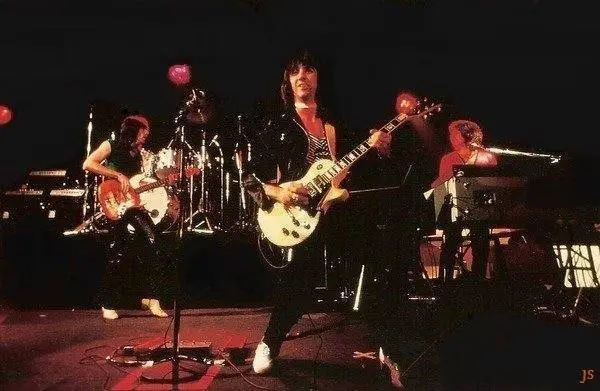
Andrew:
You briefly touched on this earlier, but on the heels of New England’s self-titled record, the band hopped on tour with KISS in support of them on their Dynasty Tour. History tells us that KISS was a band on the ropes at the time, so it must have been interesting to be a fly on the wall. What memories do you have from the road?
John:
It’s all perspective. I’m not sure about KISS being on the ropes at that time. The tour was completely sold out and the majority of our fans to this day saw us on that tour. It was incredibly successful for us and includes some of our greatest memories. When we played Madison Square Garden, we were told that playing in KISS’ hometown would be difficult and the crowd could get nasty, but from the moment we walked out on stage, the crowd when crazy. We had encores both nights! “Lose Ya” was getting massive airplay in NYC. It was the same in Montreal at The Forum- when we walked out on stage the crowd was deafening. Yet the most exhilarating joy was before the KISS tour. We were on our way to a venue in Denver to do our first headline show and all of a sudden we heard the power chords of “Don’t Ever Wanna Lose Ya” blasting through the radio. Our caravan pulled over to the side of the highway and we were so excited, so happy, and jumping for joy. We knew we were getting airplay everywhere, but this was the first time we had actually experienced it. It was a dream coming true.
Andrew:
Explorer Suite and Walking Wild, which was produced by Todd Rundgren, followed the self-titled record, but the band’s fortunes seemed to stall in an era where New England’s talent alone should have garnered huge chart success. What went wrong?
John:
It was just more of the same, really. We were almost done with Explorer Suite when the wheels started coming off. Infinity crashing as a label after just one year, signing with Elektra turned out to be a big mistake! Anything else I will leave in the past.
Andrew:
MCA Records absorbed Infinity in the early 80s. How big of an impact did that have on the downfall of New England?
John:
It had a huge impact. After the Infinity debacle, we wanted nothing to do with MCA and ended up signing with Elektra, which turned out to be a nightmare. Unfortunately, Elektra did very little for us. I think Explorer Suite was a great record, and it is still critically acclaimed. Looking back, I’m not sure the label or Aucoin knew that.
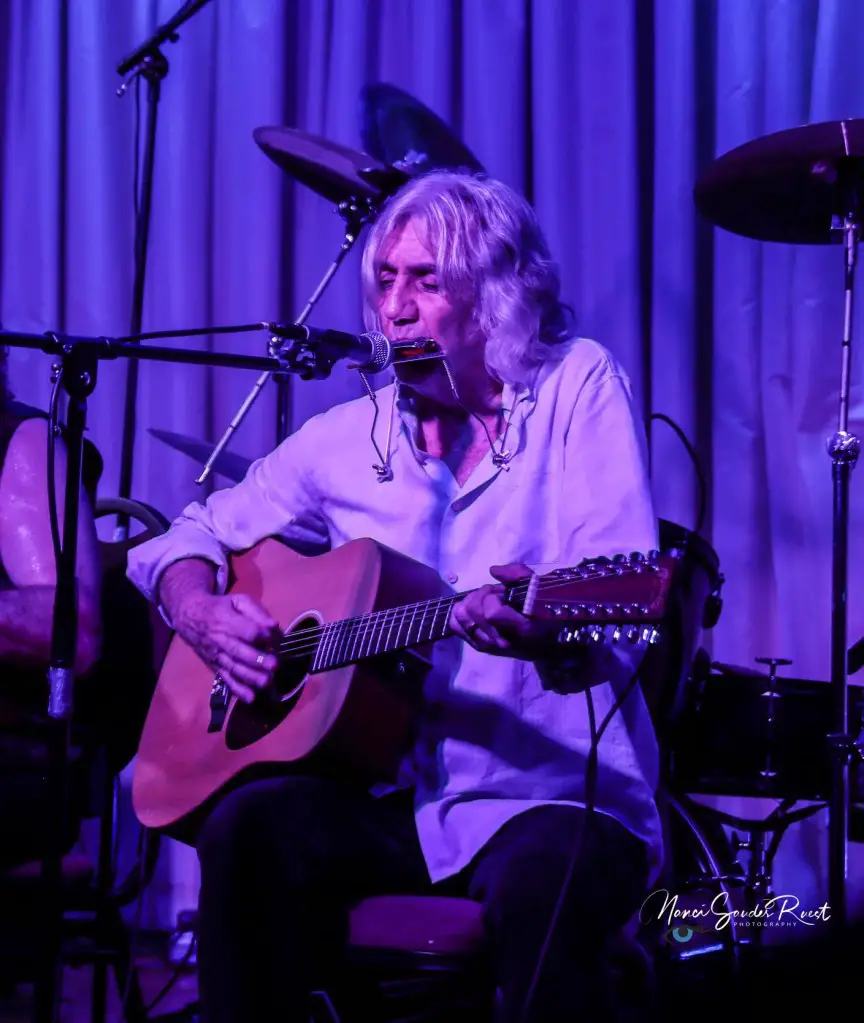
Andrew:
New England’s first era ended in 1982. Ultimately, what led to the fracture?
John:
In my mind the chemistry was dissolving and evolving in a destructive way. It happens in every band where egos become misguided, etc. I had been thinking about it for a long time, and finally felt I had to move on.
Andrew:
Gary, Hirsch, and Jimmy went on to form the short-lived band Warrior with Vinnie Vincent. Were there ever any discussions of you joining them as well?
John:
No, that would not have made any creative sense for the reasons I left New England. I am proud and happy for all the successes they had post-New England though.
Andrew:
The 1980s was a notoriously wild decade for Rock music. After the dissolution of New England, did you receive any calls to join any notable groups?
John:
I did. There was one in particular, but can’t say because after all these years I am still not sure the guitarist in the band ever knew I was approached.
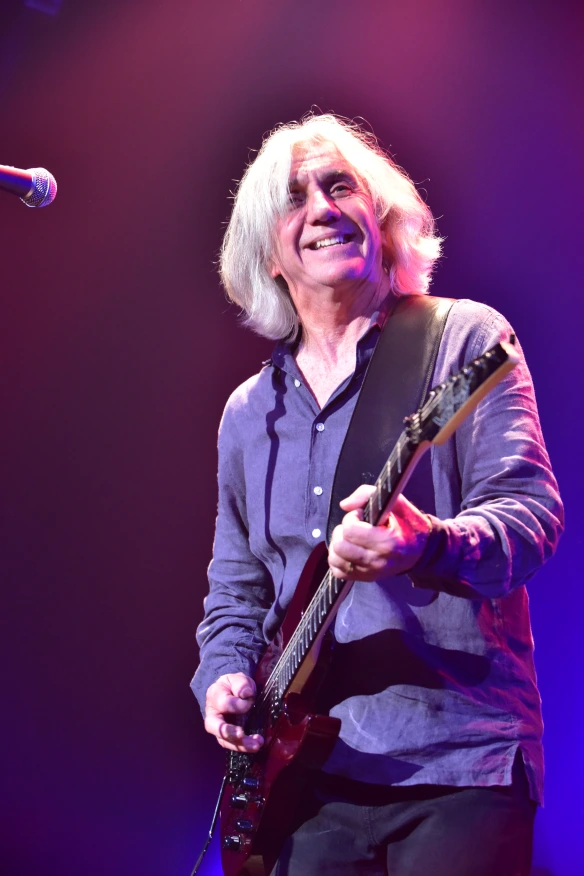
Andrew:
You soon moved into production, and then, moved into the TV and radio space. What urged the shift in career, so to speak?
John:
The opportunity presented itself, and I became very successful doing it. With two kids, I embraced the idea of creating music, and not having to leave home and tour.
Andrew:
Pushing forward now, New England briefly reunited in 2002 to record “More Than You’ll Ever Know.” Walk me through the initial conversations which ultimately led to the reunion.
John:
It’s kind of simple. I believe that track was on Hirsh’s first solo album, and I think he just wanted us to play on his record.
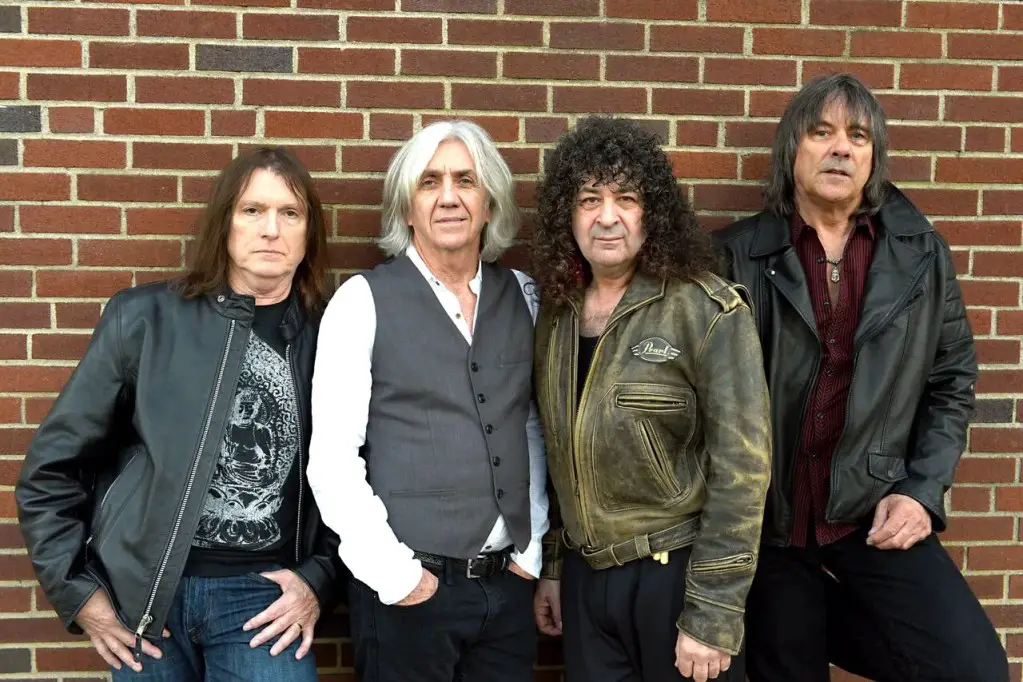
Andrew:
Since 2002, New England has sporadically gotten together for shows, but we’ve only seen one new track to date. In an age where fans seem to be clamoring for music and tours from classic bands, does New England have anything up it’s collective sleeve?
John:
Well, as you said, we did release one song called “I Know There’s Something Here” in 2015. As far as other music, everyone has been pretty busy over the years, and for me, the music we made was special, and best left on its own. Having said that, you never know.
Andrew:
Last one. You’re a man of many hats, John. What’s next for you in all lanes?
John:
I moved to SC a couple of years ago and there is a very vibrant music scene near where I live. Now that COVID is not really a danger, for the most part, I may dip my toes into that. Also, you never know where my writing may take me next. Stay tuned.
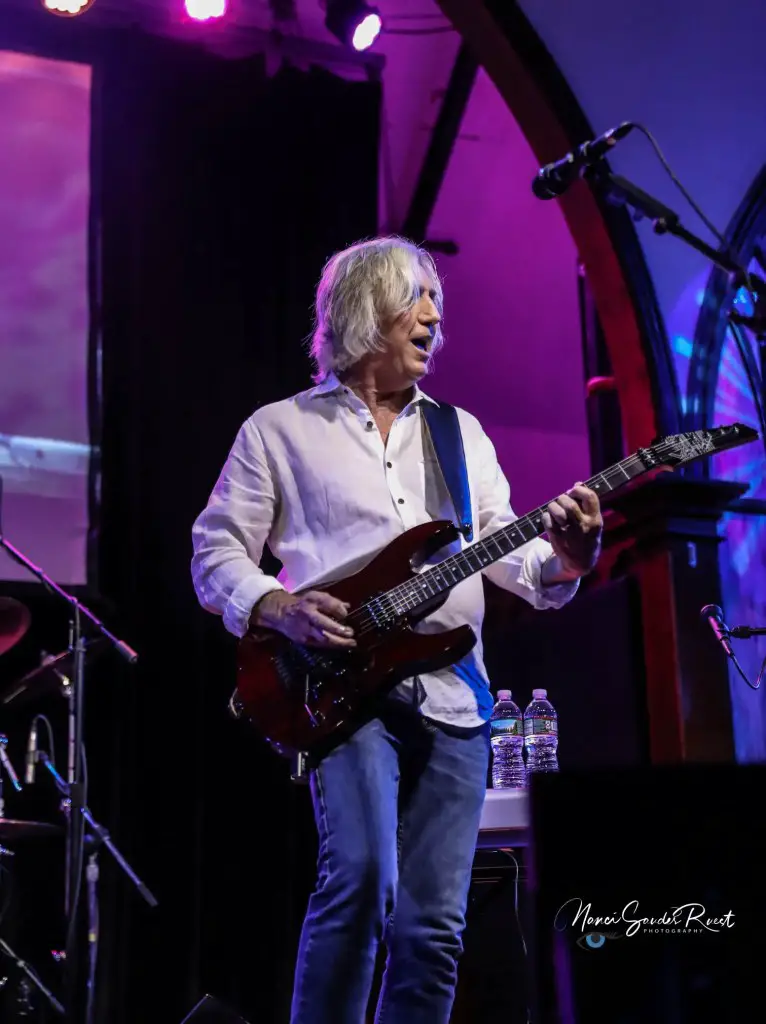
Interested in learning more about New England? Hit the link below:
Be sure to check out the full catalog of VWMusic Interviews, by Andrew Daly, here: www.vinylwritermusic.com/interviews
